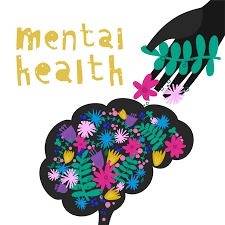The Importance of Mental Health
Aditi Pandey
In the tapestry of life, mental health is a vital thread that weaves through every aspect of our existence. Often overshadowed by physical health, the importance of mental well-being cannot be overstated. In a world that moves at an accelerating pace, recognizing, prioritizing and nurturing mental health is not merely a choice.It is a necessity for a fulfilling and balanced life.
Mental health encompasses our emotional, psychologicaland social well-being. It affects how we think, feeland act .As a result, it influences our relationships, decision-makingand overall ability to cope with life's challenges. It is not a static state but a dynamic continuum, where individuals may experience fluctuations influenced by various factors, including genetics, environment and life experiences.
One of the significant barriers to acknowledging the importance of mental health lies in the persistent stigma surrounding mental illnesses. Society often views mental health issues with misconceptions and stereotypes, contributing to a reluctance to seek help. Breaking this stigma is not just a matter of changing perceptions but a crucial step towards fostering an environment where individuals feel comfortable addressing their mental health needs.
The mind and body are intricately connected and neglecting one can impact the other. Chronic stress, anxietyor depression can manifest physically, leading to a range of health issues. Recognising the interdependence of mental and physicalwell-being underscores the importance of addressing mental health as an integral part of overall health care.
A healthy mind is the cornerstone of productivity and performance. Whether in the workplace, academics or personal pursuits, individuals with sound mental health are better equipped to focus, make informed decisions and navigate challenges effectively. Organizations that prioritise mental health initiatives witness not only improved employee well-being but also enhanced productivity and innovation.
Life is replete with uncertainties and challenges. Nurturing mental health equips individuals with the resilience needed to cope with setbacks and adversities. Resilience does not mean avoiding stress or difficult situations but rather adapting and bouncing back from them. It is a crucial skill that contributes to a more robust and adaptable approach to life's inevitable ups and downs.
The quality of our relationships, be it with family or friends is deeply intertwined with our mental well-being. Individuals with good mental health tend to form and maintain healthier connections. Effective communication, empathyand a capacity for emotional intimacy are all nurtured by a foundation of sound mental health, creating more fulfilling and supportive relationships.
Prioritising mental health is a proactive approach to preventing the onset of mental health issues. Early intervention not only improves outcomes but also reduces the burden on healthcare systems.
The reverberations of mental health extend beyond the mind, influencing physical health outcomes. Individuals with untreated mental health issues may experience increased risks of chronic conditions such as cardiovascular diseases, diabetes and compromised immune function. Recognising and addressing mental health concerns can, therefore, have a positive cascading effect on overall health.
Beyond the personal and societal implications, mental health holds significant economic relevance. The economic burden of untreated mental health issues, including healthcare costs and productivity losses, is substantial. By investing in mental health initiatives, societies can potentially mitigate these economic burdens while fostering healthier, more engaged communities.
In conclusion, the importance of mental health cannot be overstated. It is the foundation upon which a fulfilling, productive and balanced life is built. By recognising the interconnectedness of mental and physical well-being, breaking the stigma surrounding mental healthand fostering a culture of proactive care, we can collectively contribute to a world where individuals thrivein full bloom.
